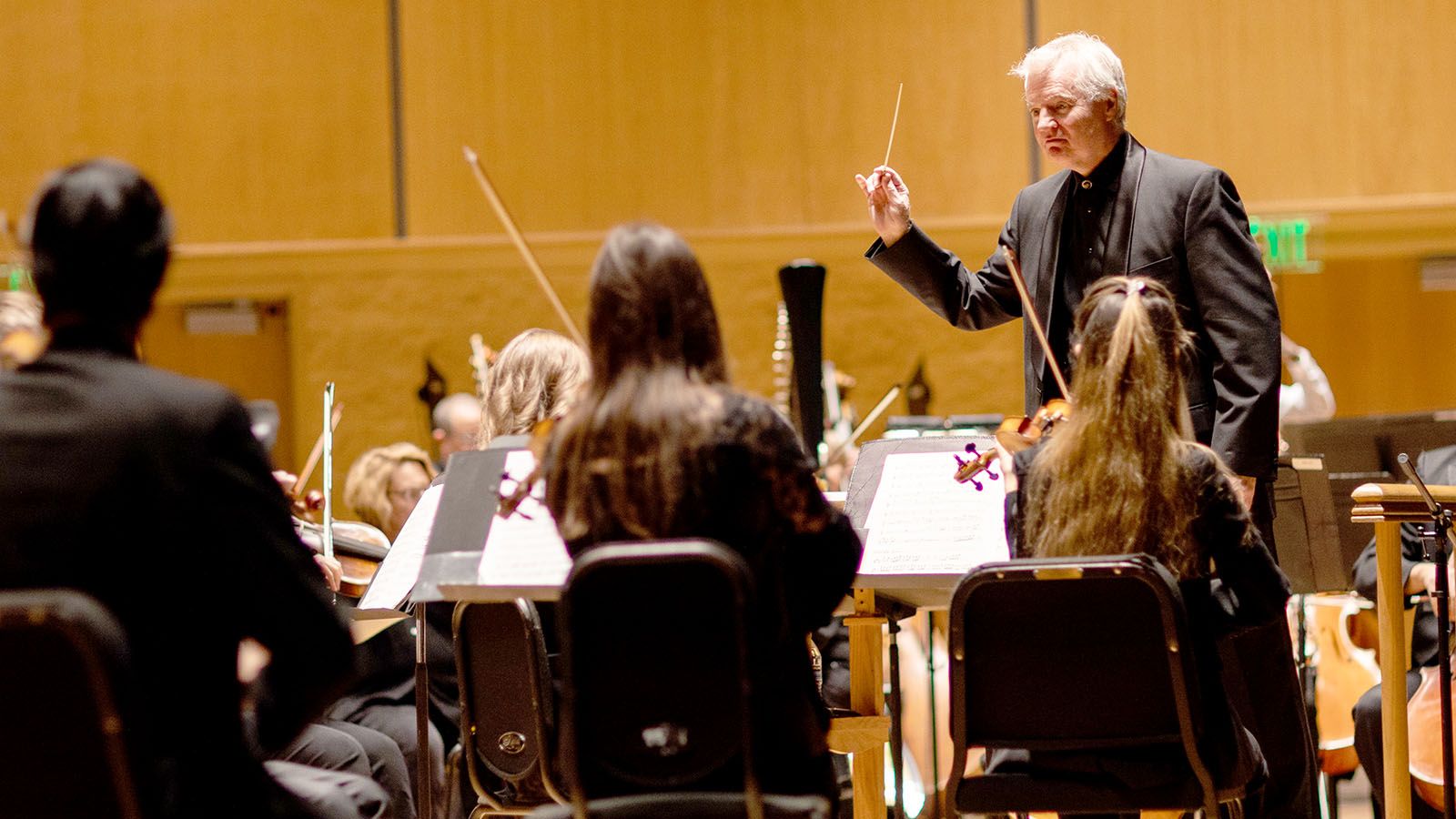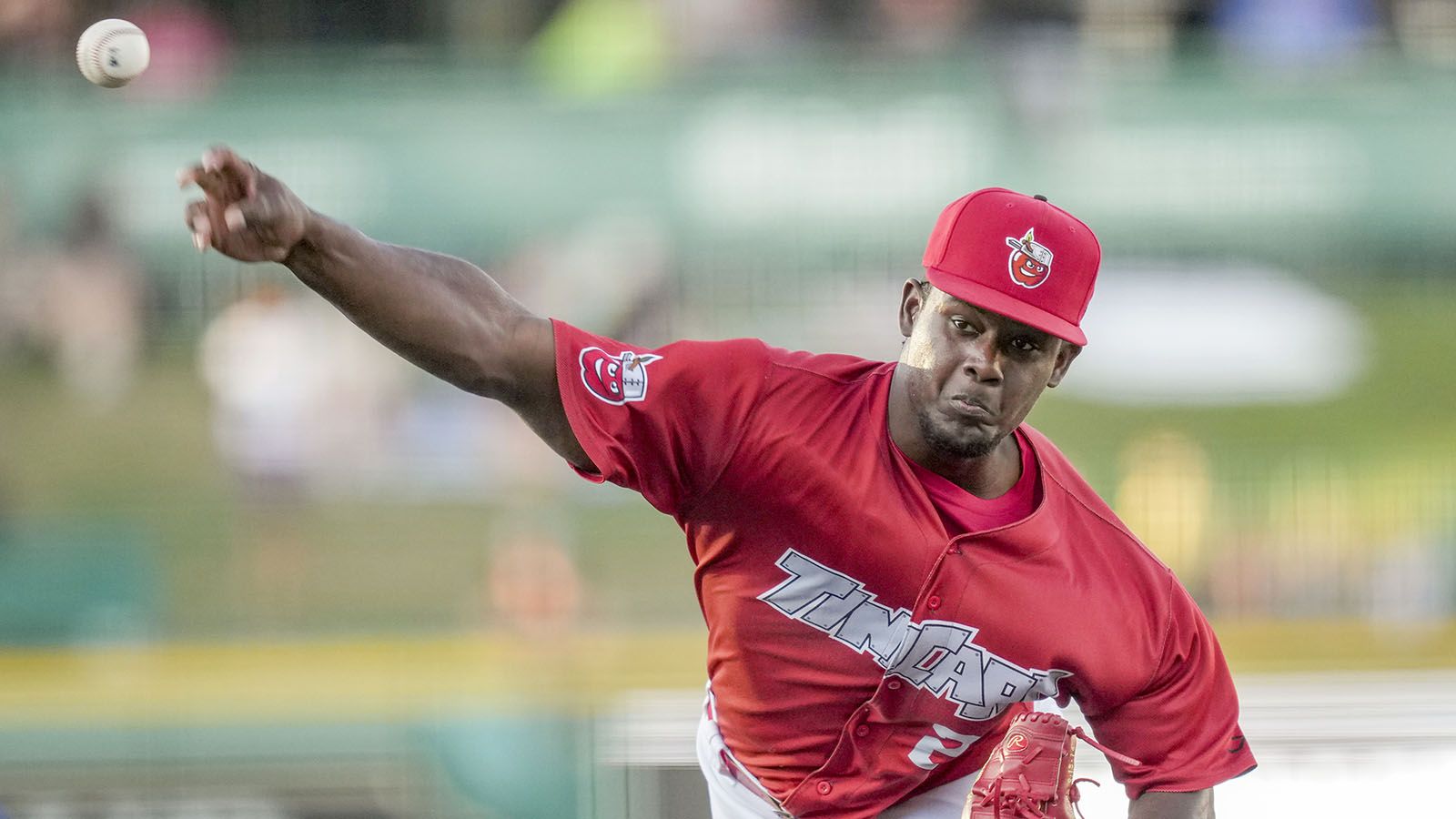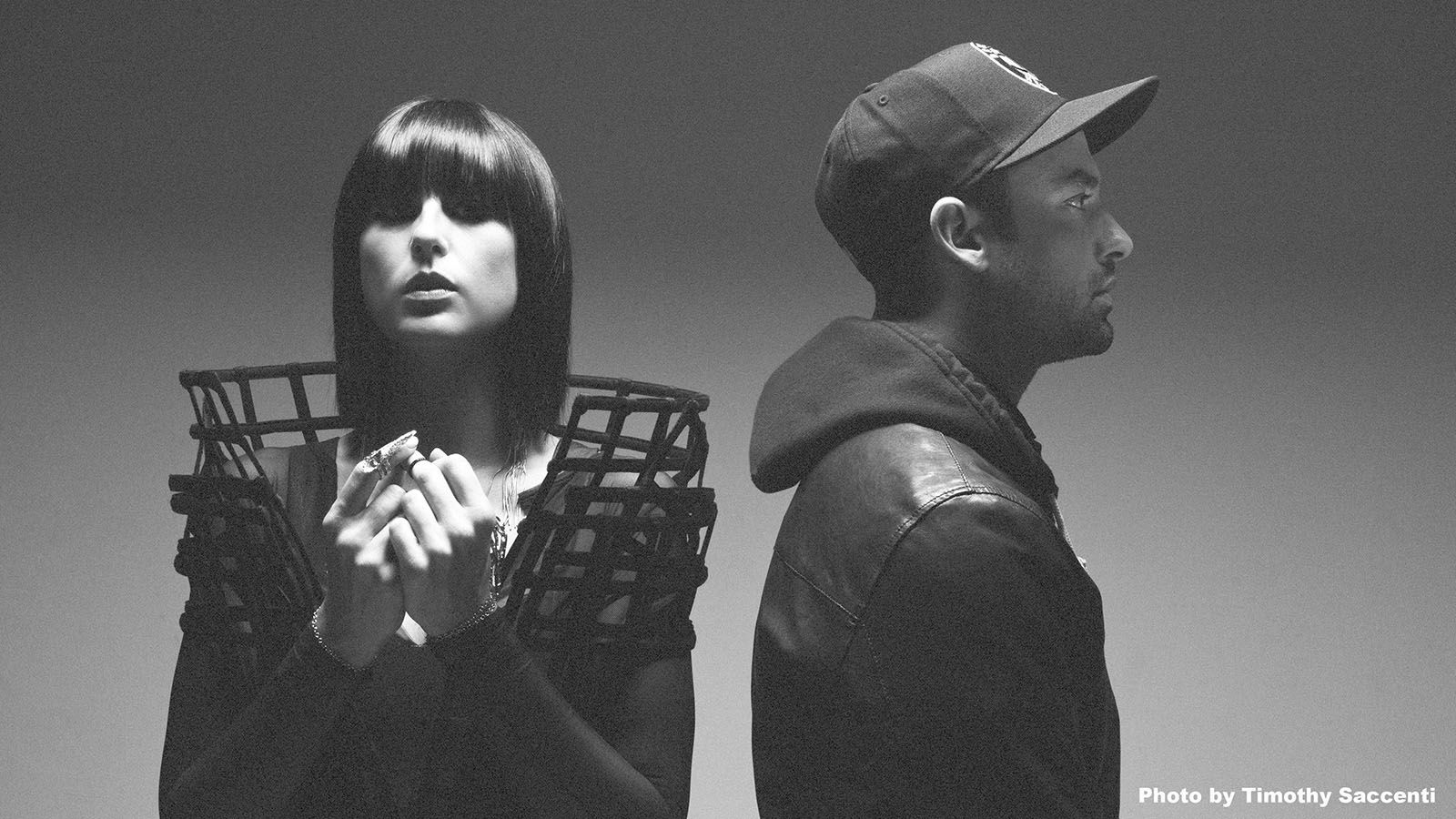“Lamb of God who takes away the sins of the world, grant us peace.”
Those lines from the Latin Mass open Ralph Vaughan Williams’ choral and orchestral masterpiece, Dona nobis pacem.
The Fort Wayne Philharmonic’s Masterworks concert on Saturday, April 5, is entitled “Tchaikovsky Pathétique,” referring to that symphony from 1893. However, that’s the second half of the concert, which opens with Dona nobis pacem.
Tchaikovsky Pathetique
Fort Wayne Philharmonic
7: 30 p.m. Saturday, April 5
PFW Auer Performance Hall
2101 Coliseum Blvd. E., Fort Wayne
$23-$81 · (260) 481-0770
Up to interpretation
Vaughan Williams was a veteran of World War I, where he served in the British army as a stretcher-bearer in an ambulance crew in France and Greece. He wrote Dona nobis pacem in 1936, as a call for peace, as everyone rightly feared that Europe was heading into another great world war.
As wonderful and profound as this work is — which I hope you find out for yourself at the concert — it’s rarely performed these days.
For this performance, Philharmonic Music Director Andrew Constantine and the orchestra are partnering with the Fort Wayne Philharmonic Chorus, 75 voices strong. They are bringing in renowned opera stars, soprano Katie Van Kooten and baritone Benjamin Taylor.
In Dona nobis pacem, only that one line is in Latin; the rest is in English. It sets poems by U.S. author Walt Whitman (1819-1892) about the American Civil War, honoring the sacrifice of veterans. “Beat! Beat! Drums!” is a frantic call to war; “Reconciliation” and “Dirge for Two Veterans” sadly pay homage.
In the final, uplifting movement, the soloists and choir sing Bible verses from the prophets and Psalms, assurances of peace and deliverance. The work ends where it started, with a very quiet “Dona nobis pacem,” “Grant us peace.”
It was Philharmonic Chorus Director Benjamin Rivera, who is based in Chicago and has been the director of the Fort Wayne Philharmonic Chorus since 2013, who proposed to Constantine that they perform this work.
“One of the reasons that I suggested it to Andrew is that it is just on its own, objectively, a phenomenal piece of music,” Rivera said. “I mean, regardless of the text, just the music itself. I mean, it’s captivating, its gripping, it’s moving. And once you add the text, talk about turning it to 11. You realize very quickly that this is a master not just of composition, but of weaving a narrative.
“It does make you wonder if Vaughan Williams is being optimistic and positive, because his ‘Glory to God in the highest’ is very exuberant. But then it winds down, it kind of loses all of its momentum by the time you get to the end and the final Dona nobis pacem. And it makes you wonder if it’s optimism, or if it’s resignation or hope. It’s really difficult to say.
“It brings me to tears every time, because I mean, you and I know how all of this turned out. We know that not only did World War II happen, which was the deaths of many, many millions, but also war and strife just don’t seem to be out of the picture really at any time since.
“It’s a staggering piece of music.”
Conducting choruses is Rivera’s full-time profession, and that means he freelances with several different groups. These include the Chicago Symphony Chorus, Church of the Ascension, a professional synagogue chorus, and The Florentine Opera in Milwaukee.
‘Not a Wasted Note’
Constantine explained what it’s like to conduct these pieces.
About Dona nobis pacem, he said, “Great music that’s unfamiliar is always a challenge, because whilst the notes in front of you are not necessarily greatly taxing, short routes to the full expressive value to those notes are very elusive.
“And so the juxtaposition of that with Tchaikovsky’s Pathétique symphony, which is in many ways life-affirming, incredibly beautiful, and a wonderful summation of his whole life.
“It’s intensely gorgeous music throughout. There are many notes, but there’s not a wasted note in it. And I love conducting it in so many ways, not least because it represents the greatest of Russian music.”
Tchaikovsky named it “Pathétique,” which is French for “deeply profound.” It has this in common with Vaughan Williams’ work: both pieces begin very quietly and end very quietly, and that may seem a strange way to end a concert.
Tchaikovsky’s work has no words and no storyline. The first movement is slow and sad. In contrast, the second movement is a happy if strange dance in the odd meter of 5/4, “a waltz with a limp.” The third movement is triumphant and uplifting, but the piece isn’t over. It ends with one more movement, slow and tragic, that Constantine describes as a death, ending in a deep drumbeat like a heartbeat, fading to silence.
Separation of politics & music
Mere days after conducting the debut of this work in Saint Petersburg, Russia, Tchaikovsky died of cholera at 53; the disease was epidemic at that time and place.
He was a tragic figure, and scholars have argued endlessly that he was suicidal. Constantine does not agree.
“He was making all sorts of positive plans about the future days before he died, writing to people in Scandinavia and other places where he was going to go on tour and asking them to set things in motion,” Constantine said. “He was very optimistic about the future.”
Constantine is well-known for performing works by Russian composers from the 1800s and 1900s. He makes a distinction: The music of those eras has nothing to do with the politics of the present.
“When we talk about Russian music, Russian art, we have to consciously separate that from any perception we have of the Russian world today,” he said.
“Without Tchaikovsky, without Rachmaninoff, I think the world would be a much poorer place. And certainly there would be a lot fewer people enjoying classical music or classical ballet without their contribution.”
“The Pathétique symphony is in many ways life-enhancing, and also, I think, combined with the Vaughn Williams, very appropriate for the times in which we live.”
 Submit Your Event
Submit Your Event




